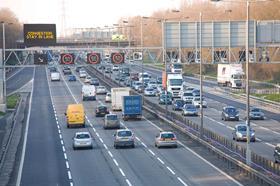NIC says current plans fall ‘well short’ of requirements

The National Infrastructure Commission (NIC) has highlighted seven areas of infrastructure activity which it believes the government has failed to deliver, as part of the first National Infrastructure Assessment.
The NIC, headed by Labour peer and former transport minister Lord Adonis, said current plans and policy frameworks “fall well short of what will be required if the UK is to have the infrastructure it needs to support its long-term prosperity and quality of life”.
A 218 page report, ‘Congestion, Capacity, Carbon: Priorities for National Infrastructure’, calls for ideas on how to solve the issues facing the country.
The NIC has launched the consultation which effectively throws the spotlight on seven elements: the creation of fast, digital data services; ‘connected’ regions; the delivery of new homes; a low-carbon economy; revolutionising road transport; reducing flood risk, and finance infrastructure spending effectively.
Adonis said infrastructure modernisation was not only the responsibility of the state and central government, and that “leadership and investment must also be a top priority for regional, city and local government across the UK”.
The NIC report said that its first assessment “cannot cover every important issue, but addressing these seven priorities will equip the UK with the infrastructure it most needs.
“Subsequent assessments, one every Parliament, will be able to consider wider issues and new challenges.”
Patricia Moore, Turner & Townsend’s managing director of infrastructure, said the NIA had “set out a bold vision”, but needed to move on to delivery. “We must focus on how we address these priorities while working in a market with constrained resources.
“Government needs to facilitate both foreign and home-grown investment into the sector, encouraging a diversity of funding methods which reflect the needs of specific schemes.
“It also needs to de-risk private sector investment in the form of policy support for the projects the assessment sets out.”
Responses to the consultation can be delivered here, by 12 January 2018.




























No comments yet